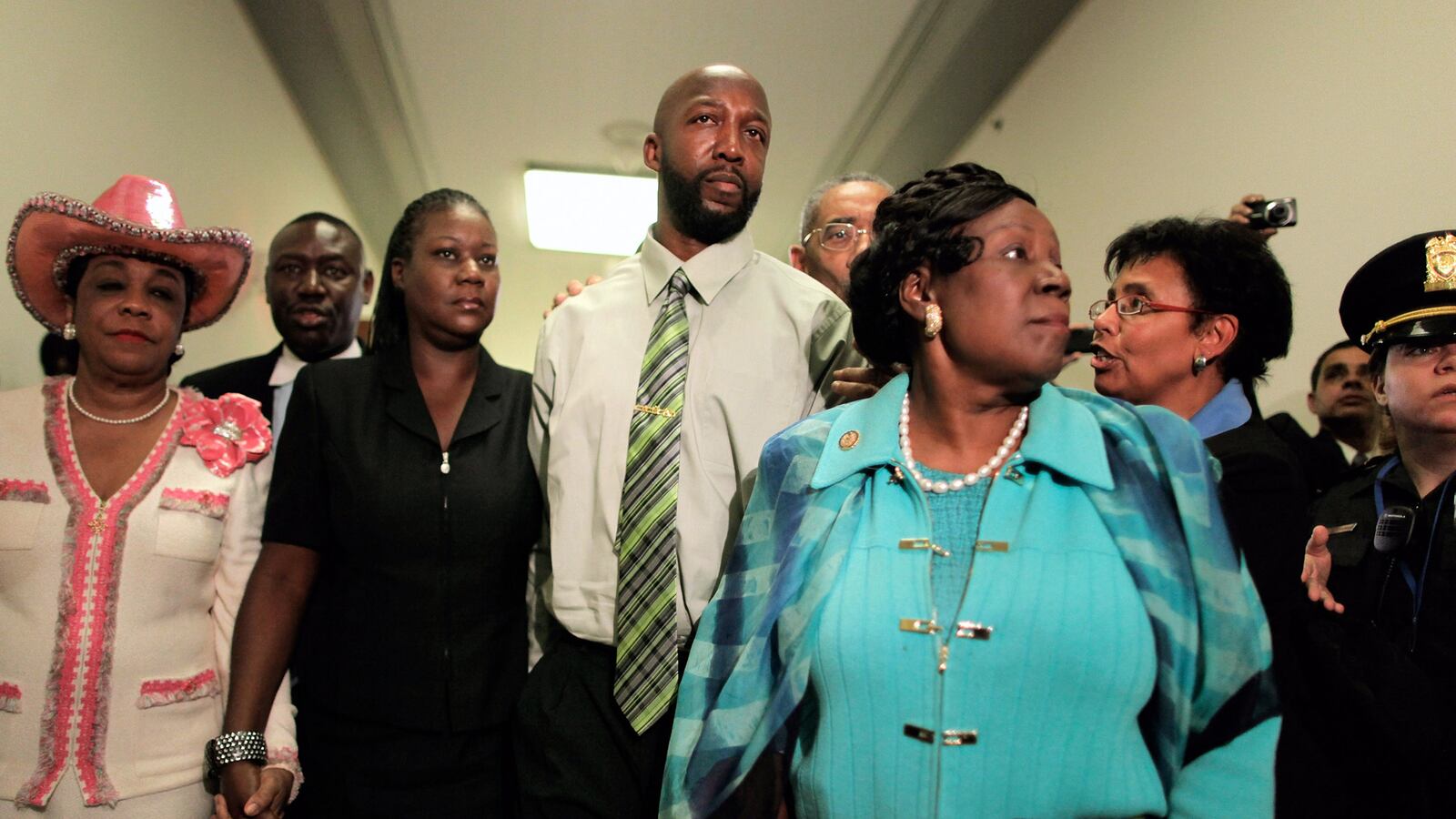In his first State of the Union address, George W. Bush took aim at the practice of racial profiling, proclaiming that “we will end it in America.”

Then came 9/11.
“I think we were on the verge of passing it 10 years ago and the attack on our country put the legislation on hold,” says Sen. Ben Cardin. But another, more recent tragedy may have changed the political atmosphere.
“We thought last year the climate was right to get the support necessary to pass this along, and the Trayvon Martin case brought this legislation to better focus,” Cardin says. The Maryland Democrat has sponsored the End Racial Profiling Act, which would prohibit law enforcement from using race or religion as a basis for search, seizure, or arrest for a half-dozen years. Seizing on momentum generated by the killing of 17-year-old Martin in February, Cardin has gained the support of 12 Democratic cosponsors, including Sen. John Kerry, and the Senate Judiciary Committee recently held a hearing on the measure.
“Racial profiling is wrong. It’s un-American. It’s something that should have no place in modern law enforcement,” says Cardin. “I thought it was important that there be a national standard so law enforcement, local or national, knows that it’s not permitted.” In the House, Democratic Rep. John Conyers has 57 cosponsors for a companion measure; only one is a Republican. The Obama White House has not taken a position on the bills.
A 2004 report by Amnesty International found that 32 million people in the United States claimed to have been victims of racial profiling. A 2009 American Civil Liberties Union study in Illinois found that Latinos there were three times more likely to be asked to have their vehicles searched than white drivers—even though white drivers were more than 2.5 times more likely to be found with contraband. The ACLU found similar results in Arizona and Louisiana.
But this year’s bill still lacks Republican support. The only Republican to attend the Judiciary hearing, Sen. Lindsey Graham, voiced general support for the bill but said profiling groups like Muslims might be necessary to maintain national security.
Hans von Spakovsky, senior legal fellow at the Heritage Foundation, believes anti-profiling laws are potentially harmful because they could undermine current practices used for homeland defense.
“I’m afraid a statute like this might prevent [law enforcement] from doing their jobs. It would make it much harder for them to spot drug mules and things like this,” he says.
Police unions, too, are staunchly opposed to a federal anti-racial profiling law, saying the legislation assumes police officers are biased and bigoted and that it’s aimed at a non-existent problem. Jim Pasco, executive director of the National Fraternal Order of Police, calls the bill “unnecessary” and “offered on a faulty premise--the premise being that there’s systemic profiling in the law-enforcement community.” Pasco says a federal law would place unnecessary pressure on officers and make citizens skeptical of their motives.
Twenty-five states have already enacted anti-profiling measures, but few of these laws are seen as effective. According to a combined ACLU and the Rights Working Group 2009 report, only five states require discipline for officers found guilty of engaging in racial profiling, and only two, New Jersey and Oklahoma, have created criminal penalties. Some states have advisory boards to examine data collected on the race and religion of those pulled over, while other states make data collection voluntary.
“You have to have a multistage approach in the police department,” explains David Harris, a professor at the University of Pittsburgh School of Law. “No. 1, you have to have a complete approach in your police department that [racial profiling] is not OK. Then you have to have accountability for anyone who infringes on the policy. In order to do this, the department has to be collecting data.” Lastly, he said, there has to be an advisory board and penalties in place.
The Cardin bill provides funding to states to train officers on new anti-crime techniques, sets up a data-collection system, and gives the attorney general the power to cut off funding to law-enforcement units that violate the rules.
“Many of the state laws, while they are called anti–racial profiling laws, are very weak and they lack enforcement capability,” says NAACP President Benjamin Todd Jealous. “So we need one law for the land, one standard.”
Says Harris: “Race is a really good way to describe somebody…but what profiling is, is the attempt to predict who is more likely to be involved in a crime. When you don’t know what the crime is or who’s involved, appearance doesn’t predict behavior. Behavior predicts later behavior...If you use profiling, you effectively put a target on anyone in that community and people are aware of it. And they become less likely to trust law enforcement and more likely to fear law enforcement.”






